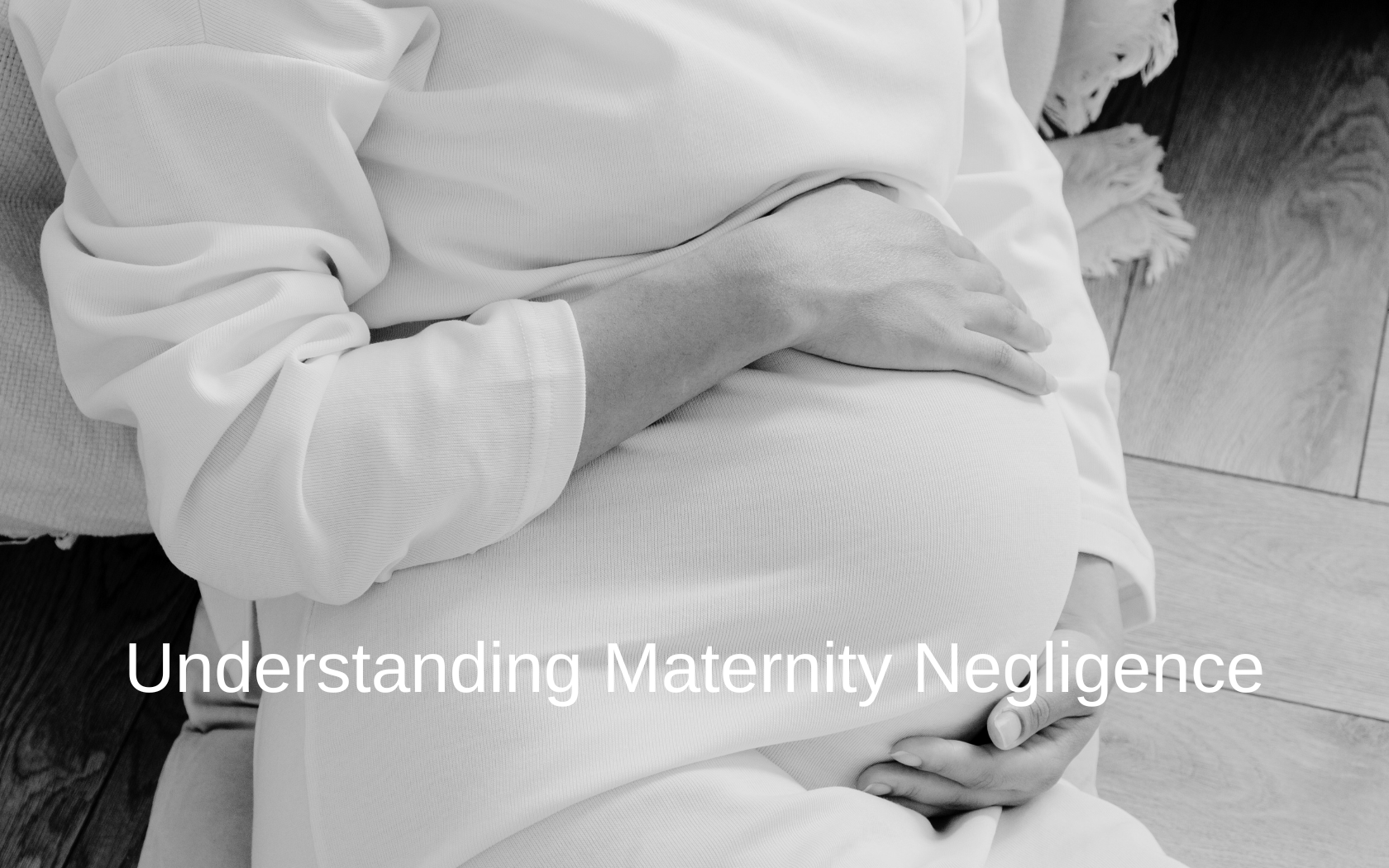Giving birth is like taking a leap off a vault. Most of the time, everything goes smoothly, but one misstep can lead to a catastrophic fall and serious injury. This is the nature of childbirth—a single mistake (maternity negligence) can result in permanent injury, trauma, and heartbreak.
Now more than ever, pregnant women are getting mistreated by doctors in the U.S. According to a recent CDC Vital Signs report, one in five women reported mistreatment during maternity care. Rates of mistreatment were higher among black, Hispanic, and multiracial women. Read our blog post: Racial Disparities in Maternal Mortality, here.
Mistreatment often leads to maternity negligence, which costs thousands of women and children their health and lives every year. A recent study found that 0.6% of childbearing women and about 0.2% of newborns were injured because of negligence in U.S. hospitals. The rate of negligent injury in hospital labor and delivery units was found to be 0.8% to 1.8%.

What is Maternity Negligence?
Maternity negligence refers to mistakes health professionals make during pregnancy, labor, or postpartum care that harm the mother and/or baby. It can include anything from inadequate prenatal care, to errors during delivery, to poor postnatal care.
Maternity negligence goes beyond mistreatment, like being scolded or ignored. Mistreating a pregnant mother is awful and unfair, but it might not warrant a lawsuit. Maternity negligence claims involve situations that injure a woman or her baby, such as:
- Failure to Diagnose: Not identifying conditions such as preeclampsia, gestational diabetes, or infections.
- Improper Monitoring: Failing to monitor the baby’s heart rate or the mother’s vital signs during labor.
- Medication Errors: Administering incorrect medications or dosages.
- Surgical Mistakes: Errors during procedures like cesarean sections.
- Delayed Intervention: Not acting quickly enough in emergencies, such as fetal distress or hemorrhage.
- Inadequate Postnatal Care: Failing to provide proper care and instructions after birth.
Maternity negligence can result in long-term consequences for both the mother and the child, including physical disabilities, developmental delays, and emotional trauma.
Who Might Commit Maternity Negligence?
Maternity negligence claims can be filed against any healthcare providers who fail to meet the standard of care expected in maternity services. A lawsuit could name one defendant or several.
Many different healthcare professionals could be involved in a mother and baby’s care during pregnancy, labor, and postpartum. They include:
- Obstetricians
- Midwives
- Nurses
- Anesthesiologists
- Pediatricians/Neonatologists
- General Practitioners (GPs)
- Radiologists
- Support Staff

Who Can File Maternity Negligence Claims?
When a health professional makes a mistake that causes harm, the mother or her family may have the right to take legal action. They could file a maternity negligence claim. This type of claim seeks monetary compensation for harm done to the mother or baby.
Compensation from a medical negligence lawsuit can cover medical bills, loss of wages, pain and suffering, and more.
Several people can file maternity negligence claims, including:
- The mother herself
- The father or partner (on behalf of the mother if she’s unable to do so)
- The child (usually the child’s parents or legal guardians file on the child’s behalf)
- The estate of the deceased (If the mother or child dies as a result of maternity negligence, the estate can file a wrongful death claim. Usually a family member or legal representative of the deceased will file).
Suing for Maternity Negligence
Are you considering filing a lawsuit against a negligent doctor, hospital, or other health professional? If so, you should check to ensure your case meets the legal definition of negligence.
For your claim to be successful, you have to prove that:
- The care the doctor provided didn’t meet official medical standards.
- The error the doctor committed caused injury or harm to the mother or baby.
- The harm or injury resulted in damages, such as physical pain, emotional suffering, or financial loss.

How to File a Maternity Negligence Claim
Filing a maternity negligence claim involves several steps. First, gather all medical records related to your pregnancy and childbirth. These documents will support your case. Next, consult with a specialized lawyer. They will guide you through the process and explain your rights.
Then, your lawyer will help you file a formal complaint. This complaint will outline the negligence and how it affected you and your baby. It’s important to provide detailed information. Your lawyer might also hire medical experts to review your case.
After filing the complaint, the other party will respond. This may lead to negotiations or a court trial. During this time, stay in close contact with your lawyer. They will handle the legal aspects and keep you informed.
The maternity negligence claim process can be lengthy. Be patient and focus on getting the support you need for your recovery and your baby’s health.
If you’d like to schedule a free consultation with our lawyers to get started on a potential claim, contact us here.
Maternity Negligence Claims FAQs
If you file a claim for birth trauma, there’s no set amount of compensation you’ll get. It depends on who was affected, how severe the injuries were, and other factors, including:
– Cost of medical bills
– Amount of pain and suffering the injury caused
– Impact on quality of life
– Amount of lost wages (because the parent had to take time off work, or the child won’t be able to earn a living in the future)
– Cost of long-term care
– Legal and court fees
Your compensation for maternity negligence or birth trauma could range from the thousands to the millions. To find out what you might be able to recover, contact our legal team. You can also view compensation amounts we’ve recovered for our clients.
Prenatal negligence is when healthcare providers don’t give proper care to a pregnant woman during her pregnancy, and it leads to injury. For example, if a doctor doesn’t treat a mother for gestational diabetes, the baby could be born with low blood sugar or respiratory issues.
Other instances of prenatal negligence include failing to diagnose and treat infections, ignoring signs of fetal distress, or prescribing unsafe medications. These oversights can cause birth injuries, developmental delays, or even stillbirth. When prenatal negligence leads to harm, families may be able to seek compensation for damages.
The legal definition of “negligence” is when someone fails to take “reasonable care” to avoid harming another person. If we apply that to maternity negligence, it means a healthcare provider doesn’t do what’s reasonable for a provider in their situation to do. We would say the doctor didn’t meet the standard of care.
For example, it’s standard procedure for doctors to avoid prescribing medications that are harmful for pregnant women. If a doctor prescribes such a medication and the baby is injured, that could be grounds for a lawsuit.




